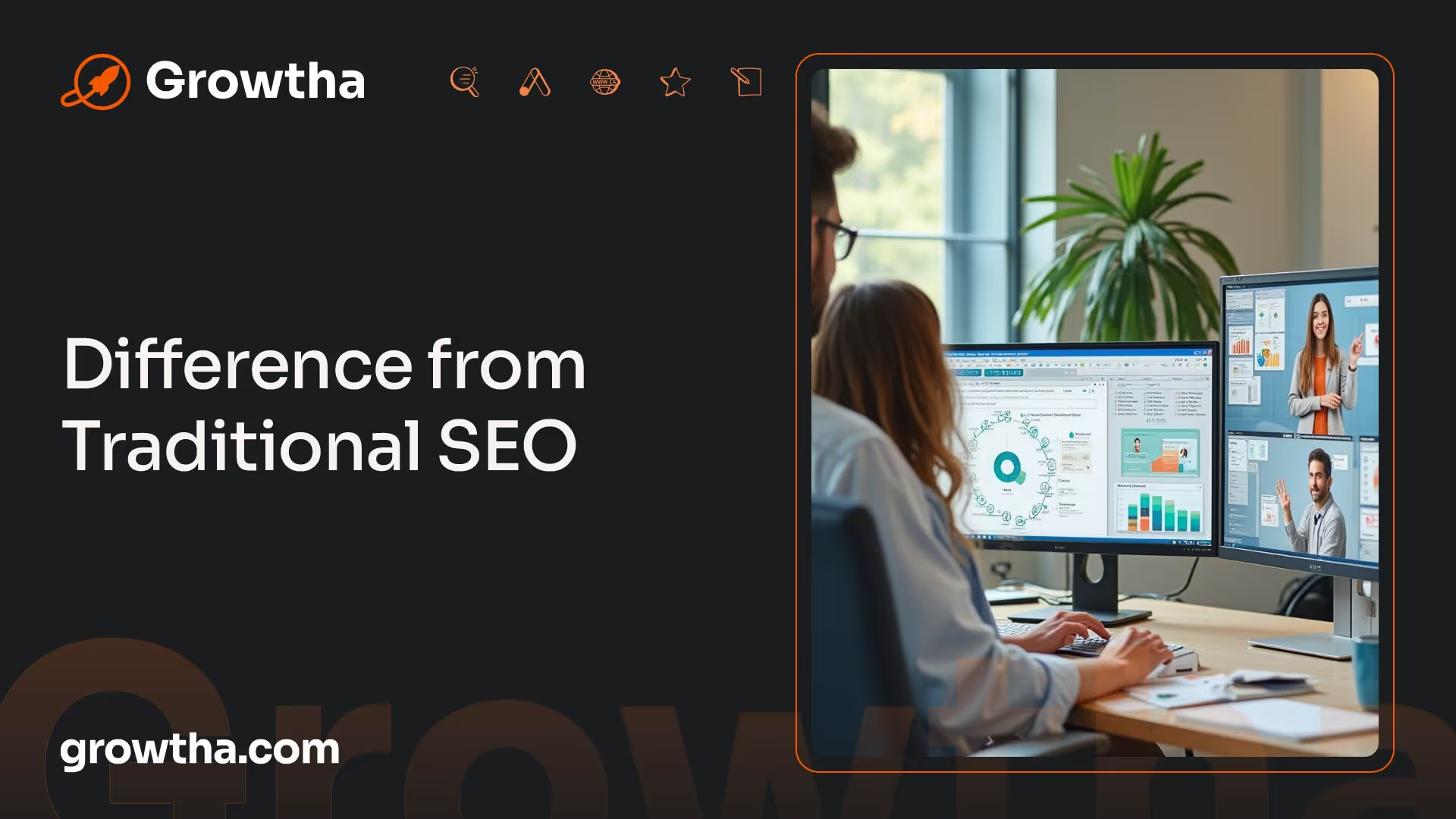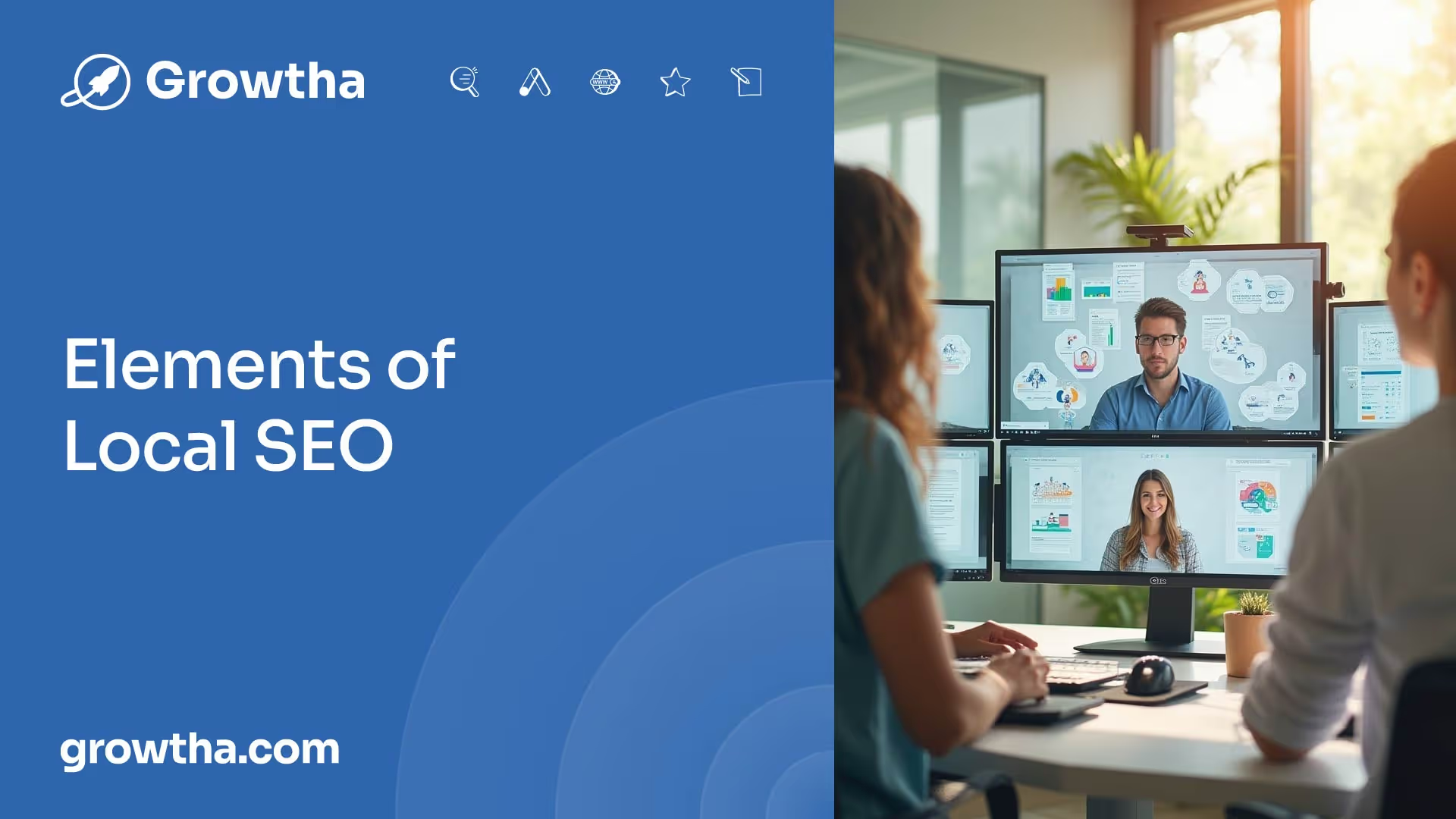Local SEO Unleashed: Maximizing Your Online Presence Locally
Local SEO plays a vital role in improving the online presence of businesses targeting a specific geographic area.


Local SEO Unleashed: Maximizing Your Online Presence Locally
Understanding Local SEO
Local SEO plays a vital role in improving the online presence of businesses targeting a specific geographic area. It focuses on optimizing websites and online listings to attract more local customers. Understanding the importance of local SEO and its differences from traditional SEO is crucial for businesses looking to succeed in their local markets.
Importance of Local SEO
Local SEO is essential for businesses aiming to attract and convert more local traffic. According to WebFX, approximately 80% of local searches convert, leading to increased foot traffic, sales, and revenue. By implementing effective local SEO strategies, businesses can improve their visibility in local search rankings and reach potential customers who are actively seeking products or services in their area.
Local SEO allows businesses to showcase their offerings to a relevant audience, increasing the chances of driving targeted traffic to their website or physical location. It helps establish credibility and trust within the local community, as customers often rely on search engines to find reputable businesses nearby. By optimizing their online presence locally, businesses can gain a competitive edge and attract more customers within their target market.
Difference from Traditional SEO

While traditional SEO focuses on improving visibility on a national or global scale, local SEO narrows its optimization efforts to reach local searchers. According to Rock Content, local SEO employs specialized measures to help connect with searchers in the area. This distinction is crucial because local searchers often have specific needs and intentions, such as finding nearby businesses or services.
One key difference between local SEO and traditional SEO lies in the targeting. Local SEO aims to optimize websites and online listings to target a specific geographic location, making businesses more visible to local customers who are actively searching for relevant products or services. On the other hand, traditional SEO aims to improve the visibility of websites on a national or global scale, appealing to a broader audience.
By focusing on local SEO, businesses can increase their chances of being found by potential customers within their vicinity. This localized approach ensures that businesses are relevant and accessible to individuals who are more likely to convert into customers.
Understanding the importance of local SEO and its distinctions from traditional SEO is fundamental for businesses aiming to maximize their online presence locally. By implementing effective local SEO strategies, businesses can increase their visibility in local search rankings, attract more local customers, and ultimately drive business growth.
Elements of Local SEO

To maximize your online presence locally, it's crucial to understand the key elements of local SEO. These elements work together to improve your visibility in local search results and attract potential customers in your target geographic area.
On-Page Optimization
On-page optimization plays a vital role in local SEO. It involves optimizing the content and technical aspects of your website to make it more relevant and appealing to both users and search engines. Key on-page optimization practices for local SEO include:
- Establishing NAP citations (business name, address, phone number) consistently across your website and other online directories [1].
- Optimizing title tags, meta descriptions, header tags, and URLs with high-volume keywords and geo-targeting to improve your website's visibility in local searches.
- Creating valuable and informative local content that reflects the interests and needs of your target audience. This could include blog posts, city-specific landing pages, and location-specific service pages.
- Ensuring that your website is mobile-friendly and provides a seamless user experience across different devices.
Off-Page Tactics
Off-page tactics are essential for building authority and credibility in the eyes of search engines. These tactics focus on promoting your website and business outside of your own website. Key off-page tactics for local SEO include:
- Building authority with local backlinks by collaborating with local partner businesses, joining local business associations, and sponsoring events for local organizations [1].
- Leveraging social media platforms to engage with your local audience, share relevant content, and promote your business.
- Encouraging customers to leave reviews and ratings for your business on prominent review platforms such as Google My Business, Yelp, and Facebook. Positive customer reviews can enhance your local SEO efforts and attract more potential customers.
Google My Business Optimization

Optimizing your Google My Business (GMB) profile is crucial for local SEO success. GMB is a free tool provided by Google that allows businesses to manage their online presence on Google. Key optimization strategies for GMB include:
- Ensuring your GMB listing is complete with accurate and up-to-date business information, including your business name, address, phone number, and website URL.
- Providing relevant and detailed information about your products or services, business hours, and accepted payment methods.
- Adding high-quality photos of your business, products, or services. According to WebFX, GMB listings with photos receive 42% more requests for directions and 35% more clicks to their website.
By focusing on these elements of local SEO, you can improve your online visibility and attract more local customers. Remember to keep your website optimized, engage in off-page tactics to build authority, and optimize your GMB profile to maximize your local SEO efforts.
Strategies for Local SEO

To maximize your online presence locally, implementing effective strategies for local SEO is crucial. By targeting your geographic location, using local keywords, and creating local content, you can significantly improve your visibility in local search results and connect with potential customers in your area.
Targeting Geographic Location
One of the key aspects of local SEO is targeting your specific geographic location. By focusing on your city, neighborhood, or state, you can send locally significant signals to search engines and enhance relevance in the local market. This, in turn, boosts targeted local traffic and sales [2].
To effectively target your geographic location, consider the following strategies:
- Incorporate your location into your website's meta tags, title tags, and headers. This helps search engines understand the geographical focus of your website.
- Include your business address, phone number, and local contact information on your website and ensure consistency across all online platforms.
- Register your business with online directories and local business listings, such as Google My Business, Yelp, and Bing Places. Optimize these listings with accurate and up-to-date information about your business.
Using Local Keywords
Utilizing local keywords is another crucial aspect of local SEO. Local keywords are search terms that include your geographic location, such as "best restaurants in [city]" or "dentist near me." By incorporating these keywords strategically into your website content, you can improve your visibility in local search results.
Consider the following strategies for using local keywords effectively:
- Conduct keyword research to identify popular local search terms relevant to your business. Tools like Google Keyword Planner and SEMrush can help in this process.
- Optimize your website's meta tags, title tags, and headers with local keywords. This helps search engines understand the local relevance of your content.
- Create location-specific landing pages or blog posts that target local keywords. These pages can provide valuable information to local searchers and improve your search engine rankings.
Creating Local Content
Creating local content is an excellent way to enhance your local SEO efforts and engage with your local audience. Local content can include blog posts, articles, videos, or infographics that provide valuable information about your area or address local interests and concerns.
Consider the following ideas for creating local content:
- Write blog posts or articles about local events, attractions, or news relevant to your industry.
- Showcase customer testimonials or success stories from local clients.
- Create videos or tutorials that feature local landmarks or businesses.
By creating compelling and relevant local content, you can establish yourself as a trusted resource in your community and attract local visitors to your website.
Implementing these strategies for local SEO will help you maximize your online presence within your target location. By targeting your geographic location, using local keywords, and creating local content, you can increase your visibility in local search results and connect with potential customers in your area.
Local SEO Best Practices
To maximize your online presence locally, it's essential to implement the following best practices for local SEO: mobile optimization, consistent business listings, and leveraging customer reviews.
Mobile Optimization
In today's mobile-driven world, optimizing your website for mobile devices is crucial for local SEO success. With a significant portion of local searches being conducted on mobile devices, it's important to ensure that your website is mobile-friendly and provides a seamless user experience.
A mobile-optimized website should have responsive design, meaning it adapts to different screen sizes and resolutions. This ensures that users can easily navigate your site, read content, and access important information regardless of the device they're using.
Google prioritizes mobile-friendly websites in its search results, so having a mobile-optimized site can improve your visibility and attract more local traffic. It's also important to optimize your site's loading speed for mobile devices, as slow-loading pages can lead to higher bounce rates and lower search engine rankings.
Consistent Business Listings
Consistency is key when it comes to business listings for local SEO. Ensure that your business information, such as name, address, and phone number (NAP), is accurate and consistent across all online directories, review sites, and social media platforms.
Inconsistencies in your business listings can confuse search engines and potential customers, leading to lower search rankings and missed opportunities. Regularly audit and update your business listings to maintain accuracy and consistency.
Additionally, claiming and optimizing your Google My Business (GMB) listing is crucial. GMB listings with photos receive 42% more requests for directions and 35% more clicks to their website compared to listings without photos [3]. Completing your GMB profile with photos and important information can make leads feel more informed about your business, increasing the likelihood of them choosing your business.
Leveraging Customer Reviews
Reviews play a critical role in local SEO. In fact, 80% of people state that online reviews have influenced their purchase decisions [3]. Encourage your satisfied customers to leave reviews on platforms such as Google, Yelp, and industry-specific review sites.
Positive reviews not only boost your credibility but also improve your visibility in local search results. Search engines take into account the quantity and quality of reviews when determining search rankings. Responding to reviews, both positive and negative, is also crucial for building trust with potential customers and showing that your business values customer feedback.
To leverage customer reviews effectively, encourage customers to leave reviews after their experience, respond promptly to any negative reviews with a solution or explanation, and express gratitude for positive reviews. This proactive approach will demonstrate your commitment to customer satisfaction and enhance your local SEO efforts.
By implementing these local SEO best practices, you can enhance your online presence locally, attract more local customers, and drive valuable leads to your business. Remember to regularly monitor and adapt your strategies to stay ahead in the ever-evolving world of local SEO.
Local SEO Success Factors
To achieve success in local SEO, it's crucial to understand the key factors that influence local search rankings. By optimizing these factors, businesses can improve their online visibility and attract local customers. In this section, we will explore three important success factors: the proximity factor in Google's algorithm, local link popularity, and Moz's Local Search Ranking Factors.
Proximity Factor in Google's Algorithm
Google's local search algorithms take into account several factors to provide the most relevant results for local searches, in addition to the usual ranking factors [4]. One of the key factors is proximity, which refers to the location of the searcher when they enter a local keyword or a query with local intent. Even if the city name or "near me" is not explicitly included in the search, Google considers the searcher's location to display local search results that are relevant to their proximity. This makes local SEO vital for businesses offering products or services locally [5].
Local Link Popularity
Link popularity plays a crucial role in traditional SEO, and it also has a significant impact on local SEO. Local link popularity refers to the number and quality of links pointing to a website from local sources. When other local businesses, organizations, or directories link to a website, it signals to search engines that the website is relevant and trustworthy within the local community.
Building local link popularity can be achieved through various strategies, such as networking with other local businesses, sponsoring local events, or participating in community initiatives. By obtaining high-quality local backlinks, businesses can improve their visibility in local search results and enhance their overall local SEO efforts.
Moz's Local Search Ranking Factors
Moz, a marketing analytics company, conducts an annual Local Search Ranking Factors survey that gathers insights from top experts in local SEO. This survey provides valuable information on the factors that influence local search visibility. According to Moz's survey, the following factors play a significant role in local SEO rankings:
- Localized content: Creating content that is specific to the local audience helps search engines understand the relevance of the website to local searches.
- Local link popularity: Building high-quality local backlinks from reputable sources strengthens the website's authority and boosts its visibility in local search results.
- Google My Business listings: Optimizing and maintaining a complete and accurate Google My Business listing helps businesses appear in Google's local pack and knowledge panel.
- Local citations: Consistent and accurate business information across various online directories and data aggregators establishes credibility and enhances local search visibility.
- Review signals: Positive reviews from local customers contribute to the overall reputation of the business and can improve local search rankings.
By focusing on these factors, businesses can optimize their local SEO efforts and increase their chances of appearing prominently in local search results.
Tools for Local SEO
Various tools are available to assist businesses in maximizing their local SEO efforts. These tools provide valuable functionalities for tasks such as conducting local-oriented SEO audits, performing keyword research for the local audience, managing Google My Business listings, building citations, and monitoring inclusion in local packs.
Here are some essential tools for local SEO:
Local SEO Audit Tools
Local SEO audit tools help businesses identify areas for improvement in their local SEO strategy. These tools analyze various aspects, including on-page optimization, backlinks, citations, and overall website performance, to provide actionable insights and recommendations.
Keyword Research Tools
Keyword research tools specifically tailored for local SEO allow businesses to discover relevant local keywords that align with their target audience's search intent. These tools provide data on local search volume, competition, and keyword variations, helping businesses optimize their content for local search queries.
Google My Business Management
Managing a Google My Business listing is a crucial aspect of local SEO. Tools that specialize in Google My Business management assist businesses in optimizing their listing, monitoring reviews, updating business information, and tracking performance metrics.
By utilizing these tools, businesses can streamline their local SEO efforts and gain a competitive edge in the local search landscape.
Tools for Local SEO
To effectively implement and optimize local SEO strategies, there are various tools available that can assist businesses in analyzing, researching, and managing their local online presence. Here are three key tools for local SEO: local SEO audit tools, keyword research tools, and Google My Business management.
Local SEO Audit Tools
Local SEO audit tools are essential for evaluating the performance of a website in terms of local search optimization. These tools assess various aspects like on-page optimization, online visibility, and overall website health. By conducting a local SEO audit, businesses can identify areas that need improvement and take necessary actions to enhance their local online presence.

Keyword Research Tools
Keyword research is a crucial aspect of local SEO. By identifying the right keywords relevant to local searches, businesses can optimize their website content and target their audience effectively. Here are a few popular keyword research tools:

Google My Business Management
Google My Business (GMB) is a crucial component of local SEO, as it allows businesses to manage their online presence on Google Maps and search results. Optimizing and managing a GMB profile can significantly improve local search rankings. Here are some tools that can assist in GMB management:

By utilizing these tools for local SEO, businesses can gain valuable insights, improve their online visibility, and effectively manage their local online presence. These tools play a vital role in optimizing local SEO strategies and ensuring businesses connect with their target audience in their local market.
References
[1]: https://rockcontent.com/blog/local-seo-strategy/
[2]: https://wisernotify.com/blog/local-seo-strategy/
[3]: https://www.webfx.com/blog/seo/local-seo-examples/







